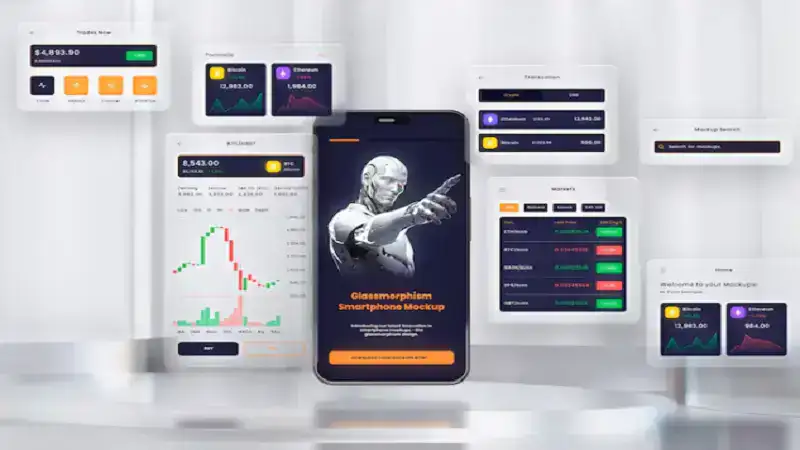In the dynamic app development world, Core App Dashboard Ecsd where every click, tap, or swipe counts, efficient management and monitoring systems are crucial. This article dives into the core aspects of ECS (Entity-Component-System) architecture and its integration into app dashboards. We’ll explore what ECS is, why it matters, and how it enhances app dashboards’ functionality and performance monitoring capabilities.
Understanding ECS Architecture
ECS (Entity-Component-System) is a design pattern used primarily in game development but increasingly finding applications in various software domains, including app development. At its essence, ECS separates data into three distinct components:
- Entities: These are the basic building blocks of ECS. An entity represents a distinct object in the application.
- Components: Components are data containers that hold specific attributes or properties of an entity. They are purely data-oriented and use Core App Dashboard Ecsd to describe the characteristics of entities.
- Systems: Systems define the behavior and functionality of entities based on their components. Systems process entities that have specific sets of components, performing actions such as rendering, physics calculations, or AI logic.
This architectural pattern promotes flexibility, scalability, and performance optimization in software development. By separating data from logic, ECS allows developers to efficiently manage complexity and enhance reusability across different parts of an application.
Importance of App Dashboards
App dashboards serve as command centers for developers, offering real-time insights into app performance, user behavior, and system health. These dashboards aggregate and visualize data from various sources, providing developers with the information needed to make informed decisions and optimizations.
Key features of app dashboards include:
- Monitoring: Continuous tracking of app metrics Core App Dashboard Ecsd such as response times, error rates, and resource utilization.
- Analytics: Analysis of user engagement, conversion rates, and other key performance indicators (KPIs) to gauge app effectiveness.
- Alerts and Notifications: Immediate alerts for critical issues or anomalies detected within the application.
- Customization: Ability to tailor dashboard views and reports based on specific development needs and objectives.
Incorporating ECS into app dashboards enhances these functionalities by enabling more granular control over data representation and system behavior.
Integrating ECS into App Dashboards
The integration of ECS into app dashboards involves leveraging its core principles to enhance monitoring, analysis, and optimization capabilities:
- Granular Data Representation: ECS allows developers to represent app data in a granular and structured manner using entities and components. Each entity’s components can be mapped to specific metrics or performance indicators tracked by the dashboard.
- Efficient Data Processing: Systems in ECS are designed to process entities efficiently based on their components. This efficiency translates into faster data retrieval and processing within app dashboards, leading to real-time insights and responsiveness.
- Scalability and Flexibility: As app complexity grows, ECS provides a scalable architecture for managing increasing amounts of data and diverse functionality. Dashboards can scale alongside app growth without compromising performance.
- Modular Development and Maintenance: ECS promotes modular development practices by decoupling components and systems. This modular structure simplifies maintenance and updates to app dashboards, allowing developers Core App Dashboard Ecsd to iterate quickly and adapt to changing requirements.
Case Studies: ECS in Action
Let’s explore how ECS enhances app dashboards through two hypothetical case studies:
Case Study 1: Gaming Application
Imagine a mobile gaming application where ECS is utilized for managing game entities and behaviors. The app dashboard for this game utilizes ECS to:
- Monitor player engagement metrics such as session duration, level progression, and in-game purchases.
- Analyze performance metrics related to rendering, physics calculations, and AI behavior across different game levels.
- Provide real-time alerts for server-side issues or performance bottlenecks affecting gameplay.
ECS enables the gaming company to optimize gameplay experiences, identify revenue opportunities, and ensure smooth server operations through their app dashboard.
Case Study 2: E-commerce Platform
In an e-commerce platform, ECS architecture is employed to manage product catalog entities and user shopping behaviors. The app dashboard powered by ECS:
- Tracks key metrics such as conversion rates, cart abandonment rates, and popular product categories.
- Analyzes user journey data to optimize recommendations and personalized shopping experiences.
- Generates alerts for inventory management issues or backend service disruptions impacting order fulfillment.
By integrating ECS into their app dashboard, the e-commerce platform gains actionable insights into customer behavior, operational efficiency, and revenue generation opportunities.
Future Trends and Considerations
Looking ahead, the evolution of ECS and app dashboards is poised to address emerging trends in software development:
- Machine Learning Integration: Incorporating machine learning algorithms into app dashboards for predictive analytics and anomaly detection.
- Edge Computing: Utilizing ECS to Core App Dashboard ECSD manages and monitors distributed systems and edge devices for real-time data processing.
- Security and Compliance: Enhancing app dashboard capabilities to meet stringent security requirements and regulatory compliance standards.
As ECS continues to evolve, its adoption of in-app dashboards will play a pivotal role in shaping the future of software development, driving innovation, and improving user experiences across various domains.
Conclusion
In conclusion, ECS architecture enriches app dashboards by providing a structured approach to data management, efficient processing capabilities, and scalability for evolving application needs. By leveraging ECS principles, developers can build robust, responsive, insightful app dashboards that empower decision-making and optimize app performance.
As technology advances and user expectations grow, the synergy between ECS and app dashboards will continue to drive innovation and excellence in Core App Dashboard Ecsd software development, paving the way for smarter, more adaptive applications in the digital era.




